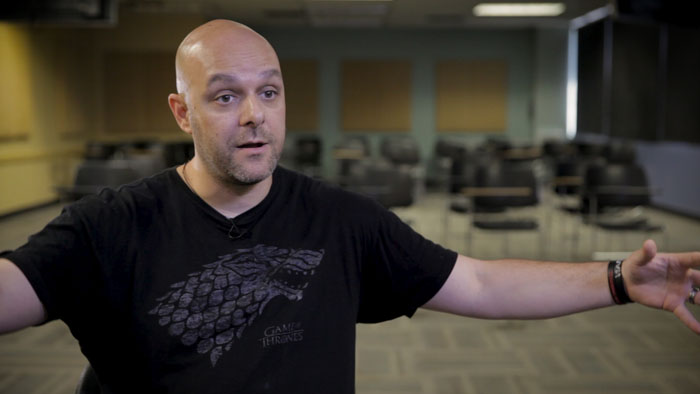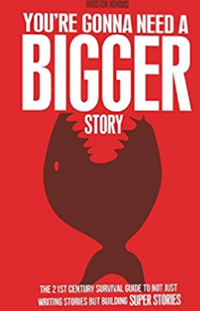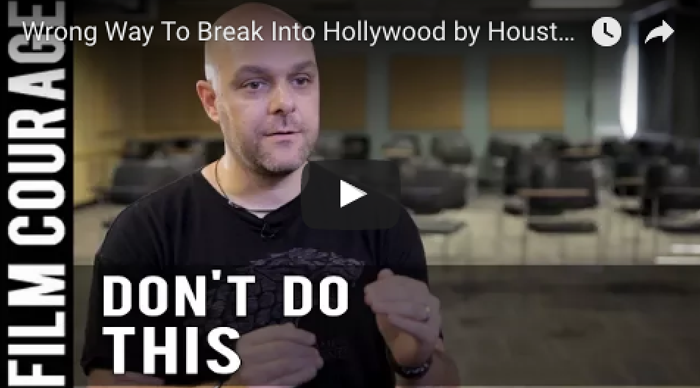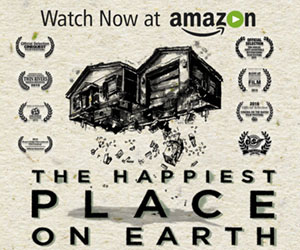
Watch the video interview on Youtube here
Film Courage: Let’s take CLOSE ENCOUNTERS OF THE THIRD KIND and [first] STAR WARS. Let’s say they both came out around the same time.
Houston Howard: They did [1977].
Film Courage: Why did one have a longer shelf life and the other one is just this amazing, nostalgic film that those of us of that time remember fondly?
Houston Howard: It’s fascinating to look at that case study because yeah, you have two films that had similar budgets, both had similar type of filmmakers. They were targeting a very similar audience, they’re released at the same time, like everything is the same. One becomes a really good movie that people love and actually did pretty well (CLOSE ENCOUNTERS OF THE THIRD KIND). Another becomes a 50 billion dollar brand. So there’s a variable there somewhere that created that separation in the marketplace. And we can look at that and probably guess pretty closely why that happened.
There’s a book that I read recently called How Star Wars Conquered The Universe where they asked Steven Spielberg this exact same question. Because him and [George] Lucas would actually give each other producer points on all of their movies. And so Lucas had producer points on Close Encounters, Spielberg had producer points on Star Wars. Obviously Spielberg got a better part of that deal. And they said “Why did it work out so well for Lucas? And pretty well for you but not even in the same ball park?” He said there’s two reasons. He said from the beginning Lucas approached this project not as just a single film, he always had a broader vision. He understood that there was story before this. There is going to be story after this. Maybe he didn’t have all the things planned out exactly and have it all worked out. But his vision was very big from the beginning.

Watch the video interview on Youtube here
And secondly he had a world that people wanted to explore, he had a story world. He said “I never even gave any thought of my story world. The setting of Close Encounters is just our world that is being invaded by aliens.” But what he did, he created a world that people wanted to continue to explore. And if you can continue to create a world in an IP (intellectual property) that people want to continue to explore, then all of the sudden that makes the room for the other things that you want to do.
And so what’s really interested about Lucas in the same book is that, he didn’t grow up wanting to be a filmmaker, he grew up wanting to be an architect and he worked at his dad’s toy store every summer as a kid. So he approached filmmaking not from the filmmaking standpoint, he approached it from the architectural and toy standpoint. He still went into make a good movie (of course). But he then approached it, the industry and the creative and the writing of it, in a completely different way that then fueled all of these opportunities.
If you look at from the original Star Wars movies, the cantina scene where Luke [Skywalker] and Obi-Wan [Kenobi], they go into the cantina and there’s all these crazy aliens around and this is where they find Hans Solo for the first time. There was a very specific choice of I want the crazy aliens all around. To cut back on budget, they could have had everybody look human like Luke if they wanted to, but instead he really made sure that every single character in that bar and in that cantina had a very distinctive look, that they seem mysterious, that it was obvious that all of them had some sort of backstory involved and just that created 1) The writing decision and 2) The directorial decision (if you watch the scene) the way they made sure they got shots of all of them, there were interesting ones in the foreground, in the background, they took time in the edit of the film to cut…cut…cut…and show a handful of them.

Watch the video interview on Youtube here
Then those creative opportunities, both on the writing and directing and the editing then fueled short stories and video games and cartoons that dealt with all of them. They created web content for all of them, they created game content for all of them and they created toys for all of them. So now (all of the sudden) where most filmmakers and directors would say “My scene is about my protagonist and my antagonist and our central characters, everything else is background.” Lucas never considered anybody background. He looked at all of these other characters as potential stories, potential stories, potential stories that just so happened to be in the background of this scene. But I’m going to develop all of them as if they could be the heroes of their own story and then put them in the background. So now the creative mindset is different when he approaches the story.
How do we do that as independent filmmakers from my $100,000 feature? Well all of the sudden, the roommate of your protagonist, now that’s just in the background on a few different scenes. Now you should take the time to think How do I make that guy interesting or that girl interesting? How do I give them an interesting look or an interesting backstory? How could I make them the protagonists of their own story? I’m going to develop them as if they could be and then I’ll go back and put them in the background.
Now when I approach my short film, this really interesting, weird, eclectic character now in there that can spur a whole companion novel, maybe it’s an EP of music, maybe it’s a sole social media account for this crazy character, it Tweeting back and forth leading up or after the film. There’s lots of different things using the principles that you see from Lucas and now applying that into your specific smaller project.
Question for the Viewers: Will you now think more about the world you are creating?

Watch the video interview on Youtube here
Film Courage: Houston I understand you attended law school?
Houston Howard: I did.
Film Courage: When you came to Los Angeles was your focus to become an attorney?
Houston Howard: No it actually wasn’t. The main reason I came to LA is so I wouldn’t become an attorney. And I went to law school in Virginia at a great school. I loved the experience and did really well. My focus was on entertainment law and litigation. At the same University where I went to law school there was a film school, as well. So naturally given the subject matter of my study which was film law and entertainment law I became friends with a number of film students at the same University, started writing and producing content on the side of law school (and all the “spare time” you have in law school).
And then just kind of got bit by the bug and really started to drill down in that last semester of law school…you know…what exactly do I want to do with the rest of my life? Because I want to pursue work that doesn’t feel like work and if money was no option and I could anything I wanted to do, would it be going into the law office every day? Is it going to a courtroom every day? And it wasn’t. I was more attracted to the other side of the transaction on the entertainment side of things.
Luckily the Juris Doctor degree is very versatile and so I knew I could use it to pursue entertainment, as a producer, as an agent, as whatever I wanted to do when I got out here and…you know, at least that’s what I told my mother-in-law…as though it wasn’t a big waste of time.
Once I graduated law school in Virginia, I pursued a couple of opportunities there, but we really made the decision to move out here.
Ten years ago we packed up our Jetta, sold everything we had and came out here. And have been here ever since and it’s been great…(Watch the video on Youtube here)
Watch the video interview here on Youtube
Special thanks to The LA Film School for allowing us to film this video interview on their campus.
BUY THE BOOK – MAKE YOUR STORY REALLY STINKIN’ BIG
https://amzn.to/2A5ynQn
BUY THE BOOK – YOU’RE GONNA NEED A BIGGER STORY
MORE VIDEOS WITH HOUSTON HOWARD
https://bit.ly/2u6sf7n
CONNECT WITH HOUSTON HOWARD
One3storytelling.com
LinkedIn
Twitter





























